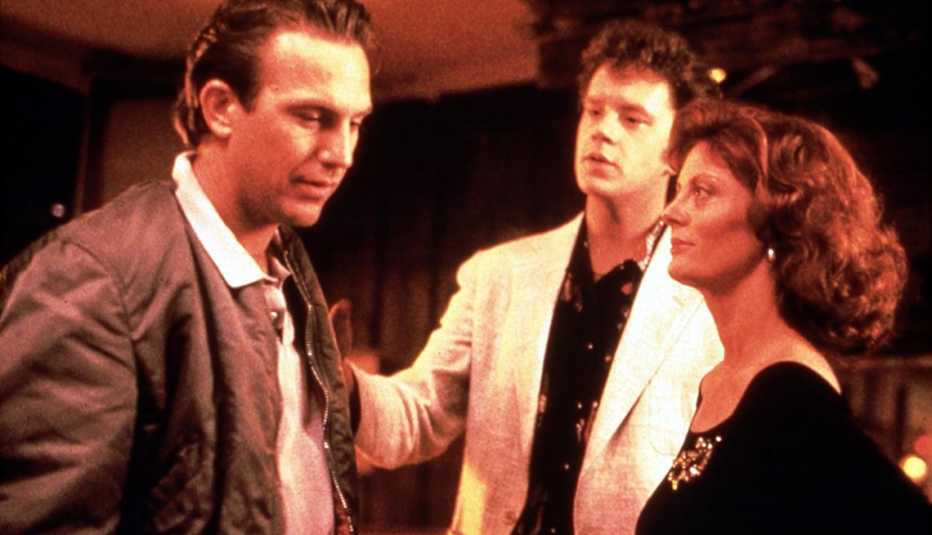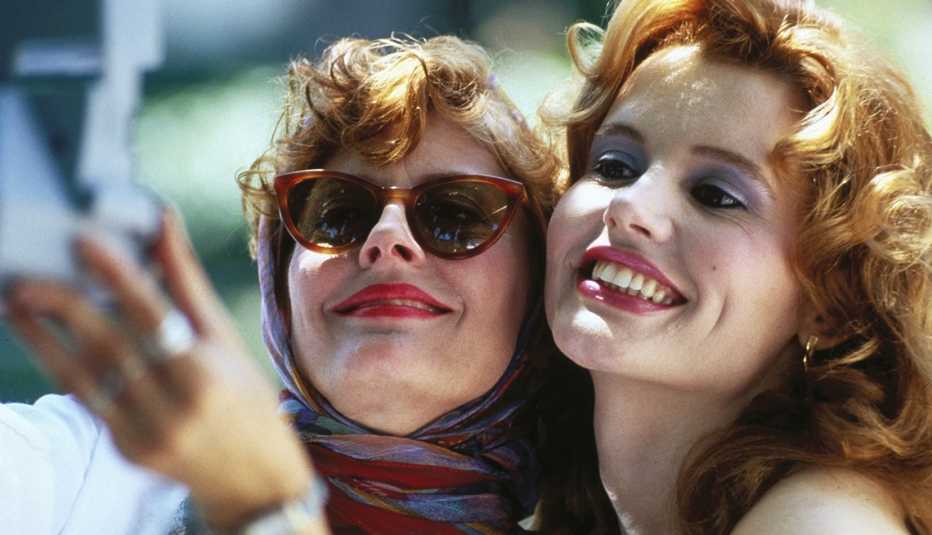AARP Hearing Center


It's 11 o'clock on a rainy night in New York, and Susan Sarandon is rocking out in Marty's Room, a live-music space within SPiN New York, a Ping-Pong nightclub she helped launch five years ago with a handful of partners. Among those partners is Jonathan Bricklin, 36, a film writer-editor linked romantically to Sarandon despite their three-decade age difference. On the stage singing her pipes out is an aspiring pop musician whom Sarandon hired a while back to staff SPiN's front desk.
Sarandon, dressed in work-style boots, leggings, a polka-dot sweater and a beret, is feeling the vibe. She swings her arms over her head and moves with the groove, comfortable dancing alone in the crowd.
It's not just the music that's got Sarandon juiced. It's the moment: After 67 years, the woman known as much for her social activism as for her acting understands what brings her joy. "It's the simple things," she says. Good food. Good friends. Sunsets and sunrises. "With age, you gain maybe not wisdom, but at least a bigger picture," she continues, wearing a safety pin in one ear and a silver ring on her thumb, "and you say, 'OK, these are the important things. The rest is just details.' "
With offshoots in L.A., Milwaukee, Toronto and Dubai, United Arab Emirates, the club, located a few blocks from Sarandon's loft, has turned the actress into a self-described Ping-Pong propagandist. "Ping-Pong cuts across every demographic, age and body type," Sarandon says. "Girls can beat their fathers. And even if you're old, you can play it forever."
The club has become a big part of the life Sarandon reinvented for herself when she and actor Tim Robbins, now 55, her partner of 23 years and the father of two of her three children, split in 2009. Though both have been vague about the reasons for the breakup, Sarandon points to an internal change launched by her performance in Exit the King on Broadway that spring. The play by Eugene Ionesco is about confronting mortality. "You can't do a meditation on death and stay in a situation that's not authentic," she says. "It made me examine where I was in my union and in my life, and to have discussions about making changes."
It wouldn't be the first time. Sarandon's quest for authenticity traces back to her youth. It has fueled her activism, defined her relationships and influenced her astounding body of acting work on more than 70 feature films, for which AARP The Magazine will recognize her with a Movies for Grownups Lifetime Achievement Award in February.
Susan Abigail Tomalin was born in Queens, N.Y., and raised mostly in suburban New Jersey. Her father was a big band singer, World War II vet and, eventually, advertising agency executive; her housewife mother, Sarandon notes, was "Catholic and incredibly fertile." The eldest of nine, Sarandon says coming from a large household had its advantages: "It makes you flexible; you're not used to privacy and can focus in the midst of chaos." She adds, "It's a primer for show business!"


Though her father died in 1999, her mother is now 90 "and still kicking ass," Sarandon reports. Her mom is also a staunch Republican, and Sarandon's siblings' politics run the gamut. "I have come to believe firmly in nature," Sarandon says. "We had the same parents, but everyone's very different." She cannot pinpoint the reason for her social consciousness. "I was actually very shy," she says in her familiar throaty voice. "But I had a need for justice starting with playing with my dolls and making sure I rotated the best dresses so one doll didn't have all of them. I think everybody tries to find their voice and to shorten the distance between when the sound doesn't match the picture."
She tried to find hers, but incongruity seemed all around her. "I was in trouble from the very beginning in school, not because I was a rebel but because I asked what were deemed to be inappropriate questions," Sarandon says.
"I remember in third grade being told that the only people who were really married were those married in the Catholic Church. I said, 'Then, how were Joseph and Mary married, because Jesus didn't create the church till later?' Original sin didn't make any sense to me. Limbo didn't make any sense. And, as I got older, a wrathful God didn't make any sense, or a God that would condemn someone to hell for their sexual orientation."
Still, in 1963, at age 17, Sarandon enrolled at the Catholic University of America in Washington, D.C., and there she participated in protests against segregation in the South, and the Vietnam War. "It was a time when the issues seemed so clear," she says. At the university, she was drawn to drama because it was another way of tapping into the compassion she had for others. "It does something wonderful for your soul to walk in another person's moccasins," she says. Also, acting suited her because it gave her freedom to try new things — though, in the end, somebody else was in charge. That, she liked: "To not have structure panics me. When I took art classes, color just overwhelmed me. That much choice! I can't go into huge department stores. It's just too much choice."


Her marriage during her senior year to graduate acting student Chris Sarandon was less a choice than a necessity, as the pair wanted to live together and Catholic University didn't allow male-female cohabitation.



































































More on entertainment
10 Hairstyles That Never Age
Classic looks that are always cutting edge